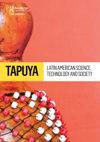临界质量:为公民科学在墨西哥创建Pajarero */Birder社区
IF 1.2
Q2 HISTORY & PHILOSOPHY OF SCIENCE
Tapuya: Latin American Science, Technology and Society
Pub Date : 2023-10-17
DOI:10.1080/25729861.2023.2254620
引用次数: 0
摘要
观鸟(pajareo)比公民科学领域早几十年,如果不是几个世纪的话。然而,通过将其纳入机构计划和数字平台[Invernizzi, N. 2020]。公众参与与民主化:对科技生产与消费的影响中国科学技术与社会,3(1):227-253。https://do.org/10.1080/25729861.2020.1835225],观鸟已经被嵌入到数据密集型科学的逻辑中[Scroggins, m.j.和i.v. Pasquetto. 2020]。错位的劳动:论数据密集型科学中可见劳动的种类和价值参与科学,技术和社会6:111-132。https://do.org/10.17351/ests2020.341],在增加志愿者人数的前提下积累越来越多的数据。这些做法在墨西哥的历史很近,只有大约15年的历史。从那时起,从业者数量的爆炸式增长在很大程度上是墨西哥政府环境机构实施的制度安排和自上而下的倡议的产物。基于最近STS的公众参与方法,我建议公共政策可以合法地用于创造公众,这些方法将公民科学视为一种情境和背景现象。通过对采访、视觉材料、观鸟实地考察中的参与观察和其他人种学材料的研究,我发现了导致在墨西哥建立旅、团体和观察俱乐部的不同故事。我认为,这种方法使我们能够超越规范立场,呈现出比机构和社区之间的工具关系更为复杂的现实。本文章由计算机程序翻译,如有差异,请以英文原文为准。
Critical mass: the creation of Pajarero */Birder communities in Mexico for citizen science
Birding (pajareo) precedes the field of citizen science by decades, if not centuries. However, by being incorporated into institutional programs and digital platforms [Invernizzi, N. 2020. “Public Participation and Democratization: Effects on the Production and Consumption of Science and Technology.” Tapuya: Latin American Science, Technology and Society 3 (1): 227–253. https://do.org/10.1080/25729861.2020.1835225], birding has been inscribed into the logic of data-intensive science [Scroggins, M. J., and I. V. Pasquetto. 2020. “Labor Out of Place: On the Varieties and Valences of (In)Visible Labor in Data-Intensive Science.” Engaging Science, Technology, and Society 6:111–132. https://do.org/10.17351/ests2020.341], with the premise of increasing the number of volunteers to accumulate more and more data. The history of these practices in Mexico is very recent, dating back only about 15 years. The explosion in the number of practitioners since then has been largely the product of institutional arrangements and top-down initiatives carried out by Mexican government environmental agencies. Building on recent STS approaches to public participation that conceive citizen science as a situated and contextual phenomenon, I propose that public policies can be legitimately used to create publics. From the study of interviews, visual materials, participant observation in birding field trips, and other ethnographic materials, I recover the different stories that have led to the creation of brigades, groups, and observation clubs in Mexico. I argue that this approach allows us to go beyond normative positions and present a much more complex reality than the mere instrumental relationship between institutions and communities.
求助全文
通过发布文献求助,成功后即可免费获取论文全文。
去求助
来源期刊

Tapuya: Latin American Science, Technology and Society
Social Sciences-Social Sciences (all)
CiteScore
1.60
自引率
0.00%
发文量
39
审稿时长
19 weeks
 求助内容:
求助内容: 应助结果提醒方式:
应助结果提醒方式:


